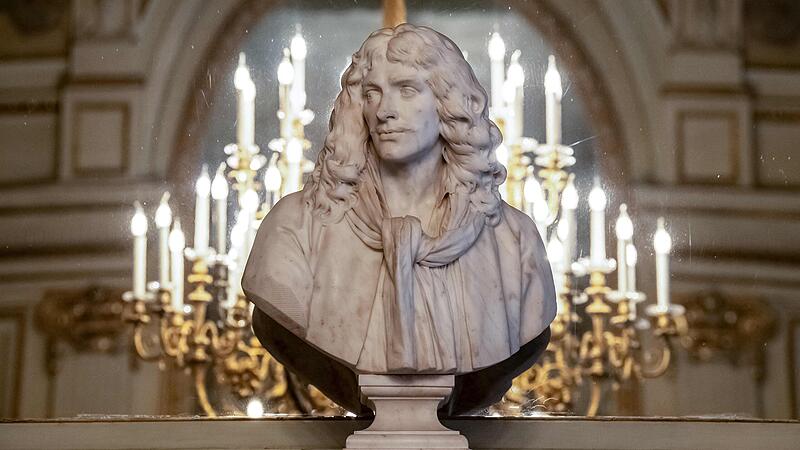His real name was Jean-Baptiste Poquelin, and his origin was also civil. As the son of a wealthy textile dealer and interior decorator, the young man received a solid humanistic education in a renowned Parisian Jesuit college. During his law studies he also listened to lectures by Pierre Gassendi, who was critical of religion.
The young Molière was more interested in the theater than in his father’s textile business and law. With his mother’s inheritance, he founded his own theater group in 1643, whose financial failure brought him several weeks in prison just two years later. But Molière was not discouraged. He joined a traveling troupe as an actor, became principal there and, from 1655, enriched the program with his own works, following the example of the commedia dell’arte.
His breakthrough as a playwright came with “Les Précieuses ridicules”, a fine satire on bourgeois girls who imitate aristocratic habits. An invitation to the Parisian court soon followed, where Molière won the sympathies of the young King Louis XIV. He could make good use of his favor, because with his comedy “Tartuffe”, an apt satire of bigotry and hypocrisy, Molière aroused the enmity of the arch-conservative court nobility, whose strong focus was the Queen Mother, the Habsburg Anna.
discord and tragedy
The disappointing experiences of this period, which was so successful overall, included Molière’s serious quarrel with the powerful court conductor Jean-Baptiste Lully and family tragedies. Two of his three children died in their first year of life, and his wife Armande, who was 24 years his junior, separated from him at times.
The last decade of Molière’s life saw the creation of those classic character comedies (“The Misanthrope”, “The Miser”, “The Imaginary Invalid”) which continue to delight theater audiences to this day, provided ambitious directors do not fall into the fatal error that they should use this subtle, critical art of entertainment ” brush against the grain” and “transform into today through deconstruction”.
death on the theater stage
Molière’s death in 1673 was worthy of a great comedian. He himself played the title role of the hypochondriac Argan in “The Imaginary Invalid” and suffered a hemorrhage during the performance, which the audience applauded as a good performance. Unfortunately, she was deadly serious. Molière died a few hours later. Like many great comic masters, Molière had tried his hand at tragedy at times – unsuccessfully, apart from his final appearance.
This macabre anecdote is not guaranteed, but it is too good to be doubted.
Moliere for beginners
- “The Imaginary Sick” In Molière’s last and best-known comedy, he denounces the belief in medicine and authority of his time.
- “Women’s School” In this verse comedy, Molière caricatures the sexist possessive fantasies of the eternal bachelor Arnolphe with biting mockery.
- „Tartuffe“ The unmasking of clerical hypocrisy triggered a theater scandal and a ban on performances. Today it is considered to be his most-performed work.
- “The Miser” For Harpagon, marriage is a business. But he didn’t count on the cunning of his children. Character comedy with many burlesque scenes.
Source: Nachrichten




